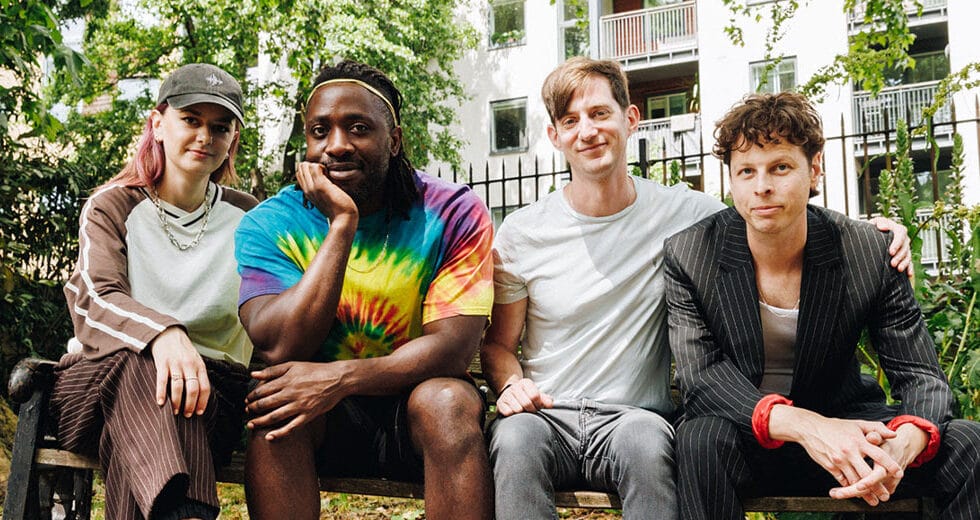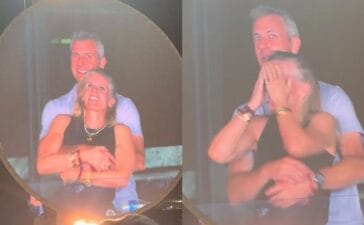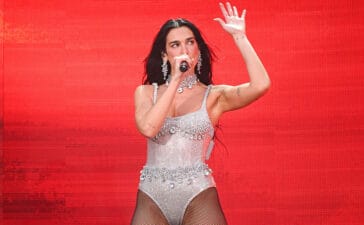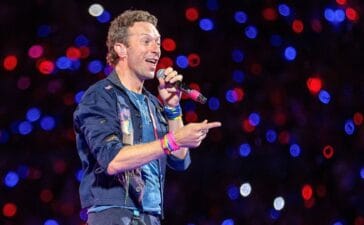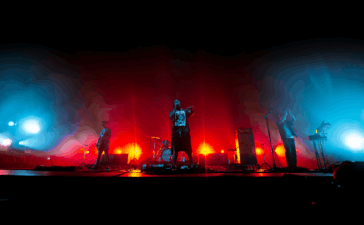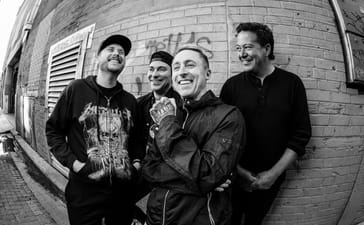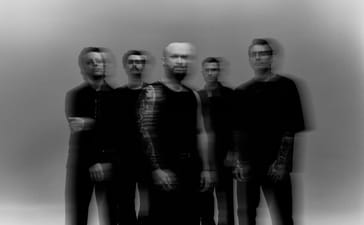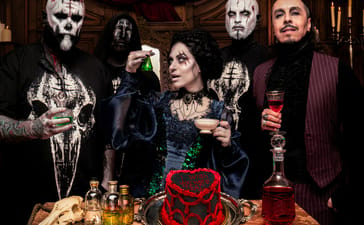Bloc Party talk twenty years of Silent Alarm, saying no to major labels and why they never wanted to be the next Coldplay.
“It’s quite a surreal thing,” Bloc Party’s Russell Lissack admits, a little cautiously. I’d just asked him how it feels knowing Silent Alarm, Bloc Party’s seminal debut album, turns twenty this year.
Oh yes – sorry to break this to you so early in the piece. You read that correctly. If you didn’t feel old before, you probably do now. Silent Alarm is twenty.
The words don’t come easily to him. It’s as if he can’t quite believe that this thing, this album that was once their baby has finally come of age. If it were a person, it would probably be heading off to uni now, or working behind the bar at the local.
“I mean, twenty years is obviously a long time. You were five when it came out. It’s just hard to think about how much time has passed. Like, it’s quite difficult to process.”
“How difficult?” drummer Louise Bartle grins. “How difficult is it to process, Russell? Are you crying?”
“Yes, there’s a lot of crying on tour,” Lissack fires back, dry and deadpan.
That’s Bloc Party. There’s an ease about them. A natural camaraderie that makes the whole thing feel like you’re sitting in a pub with a few mates, cigarettes on the go, half-talking about the weather in London. For a moment, they feel like regular people with regular jobs. But Bloc Party aren’t that.
Formed in 1999 at Reading Festival, Kele Okereke and Russell Lissack got their start by slipping a BBC Radio 1 DJ a demo of She’s Hearing Voices. From there, it snowballed. Their debut album, Silent Alarm, landed in 2005 and took off fast. Fusing indie rock with electronica, post-punk and a bit of house, it carved out a sound that was raw, intelligent, and completely distinct. It didn’t just capture the moment — it shaped it.
Without Bloc Party, you probably don’t get bands like Foals, alt-J, Paramore (in their After Laughter phase), Two Door Cinema Club, or even The 1975 in the form they are now. Their impact is stitched into the DNA of a whole era of alt music.
But that’s not the vibe today. Today, it’s just three people talking shit. It’s hot in London. The kind of heat that sticks to your skin and makes you sweat through your T-shirt before lunch. I don’t need to do much steering. The topic of twenty years of Silent Alarm is still lingering in the air. Lissack clearly has more to say, he’s just working through how to say it.
“It doesn’t feel like yesterday,” he admits. “So much has happened in our lives since then. Even just musically — how many albums we’ve put out, the tours we’ve done, how many band members we’ve cycled through. Right, Louise?”
She looks mock-offended, like a wind-up teeth toy coming to life. “What?” she gasps, before breaking into a grin.
“I remember being a teenager in the mid-to-late nineties, listening to bands that were only five or ten years old, and even that felt like a lifetime ago. So, to now be in a band that’s still going — I’m very aware of just how long a period that actually is.”
“I call Russell the grandad of indie rock,” Bartle teases.
“I very much appreciate that,” he says.
“He loves it.”
“I love it.”
“You’ll be grandma soon enough, Louise.”
“I’ve got youth on my side, sort of,” she replies. “But I’m thirty now, so maybe not.”
Bartle was only ten when Silent Alarm came out. She hadn’t even listened to it before her first meeting with the band.
“I genuinely didn’t even know Bloc Party,” she admits, openly. “It was the generation above me who were listening to them at uni. I was, like, eleven — deep in my emo, skinny jeans phase. So yeah, I missed the whole thing.”
That actually might have helped her get the gig.
“I think that’s why Kele was interested in me,” she says. “I don’t think he wanted someone who was already a fan. If I had known the whole catalogue, he might’ve been turned off. So, it worked in my favour.”
There’s something funny about that. The idea that Silent Alarm, an album with such a defined legacy, was made by a group of twenty-somethings still figuring it all out. It makes you wonder whether they had any real idea what they were doing.
“We knew what we wanted to do creatively. To a point. We didn’t know a lot about production, but we had a vision for how the songs should feel and how they should sound,” Lissack explains.
That vision got sharpened when they met Paul Epworth, the producer who would help turn those ideas into something undeniable.
“People like Paul saw the potential in what we were doing,” Lissack says. “But I don’t think anyone expected it to blow up as fast as it did. We were on an indie label. No one thought we’d be on TV, or on festival stages that size.”
They weren’t always meant to be indie, though. Early on, Bloc Party famously turned down major label offers. This was a very bold move in the early 2000s, when most bands were gagging for those kinds of deals.
“I remember meeting with Parlophone,” Lissack says. “They came to a rehearsal and had this strong vision of turning us into the next Coldplay, who were also signed to them. But that wasn’t the kind of band we wanted to be. We knew that if we signed with them, we’d lose control. Then we met with Wichita, and they were happy for us to do what we wanted creatively.”
It wasn’t a popular decision at the time.
“Everyone thought we’d fucked it,” he says. “But long-term, we were proven right.”
And they were. That kind of decision, back then, was rare. But now you see artists like RAYE, Clairo, and so many others carving out paths outside the major label system and making it on their own terms.
“You can do it all yourself now,” Lissack says. “Release music, build a fanbase, keep your voice intact. That freedom has always been important to Bloc Party. It’s just part of who we are. Or maybe we’re just control freaks.”
But there’s another kind of pressure, too. The kind that comes when your first record becomes the record. Does it follow you? Does it become a shadow?
“Not really,” Lissack says. “We always believed in what we were doing. After Silent Alarm was recorded, there was a nine-month gap before it came out. We kept writing the whole time. A lot of those songs ended up on the second album.”
He doesn’t see that debut as something to live up to. More like a launching point.
“It was never about selling a million records. It was about making something that felt bigger than what came before. If you’re proud of what you’re making, then you don’t need to second guess it.”
And that’s what Bloc Party have kept doing. Making what they want. Saying no when it counts. Staying sharp enough to never settle into nostalgia even now, some twenty years later.
Bloc Party are performing 20 Years of Bloc Party: Performing Silent Alarm and Greatest Hits in Sydney, Melbourne, Adelaide, Perth and Brisbane. Tickets can be accessed here.


